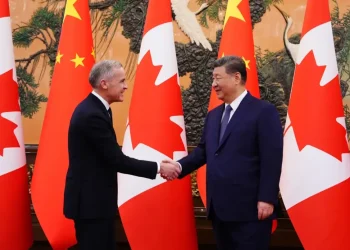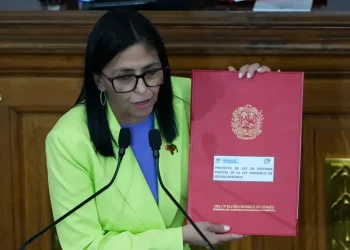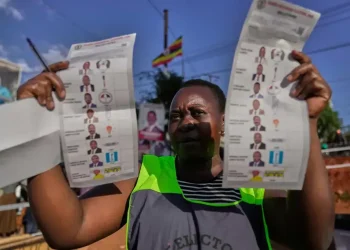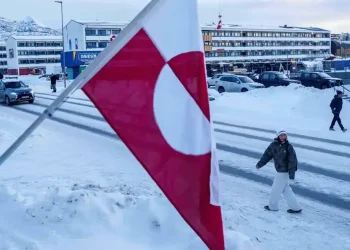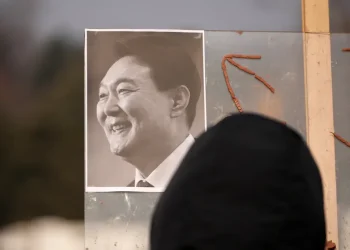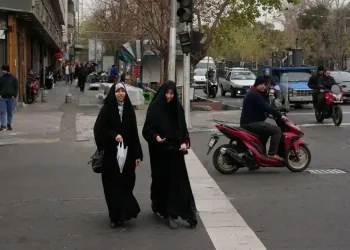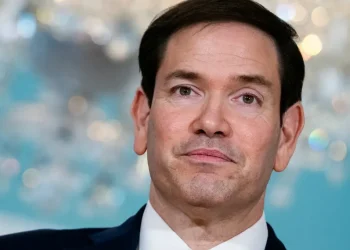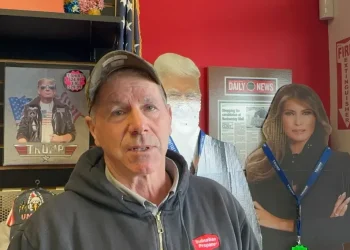Trump Freezes Aid to South Africa Over Land Law and Israel Stance
U.S. Cuts Assistance, Citing Discrimination Against White Farmers
U.S. President Donald Trump has signed an executive order halting financial assistance to South Africa, citing concerns over a controversial land expropriation law and the country’s stance against Israel in the ongoing Gaza conflict.
The order, signed Friday, instructs U.S. agencies to freeze all aid unless deemed essential. Trump claims the South African government is violating human rights by allowing the seizure of farmland from White farmers without compensation.
“The United States shall not provide aid or assistance to South Africa as long as these unjust and immoral practices continue.” – Executive Order
South Africa Denies Land Confiscation Allegations
South African President Cyril Ramaphosa has previously denied that the government is confiscating land. He insists that land reforms are aimed at addressing historical injustices from the apartheid era.
The South African government responded with strong criticism, calling Trump’s order a “campaign of misinformation.”
“This order lacks factual accuracy and fails to recognize South Africa’s painful history of colonialism and apartheid.” – South Africa’s Foreign Ministry
The ministry also accused the U.S. of hypocrisy:
“It is ironic that the U.S. offers refugee status to a privileged group while deporting vulnerable people from other parts of the world.”
Trump Orders Support for Afrikaner Refugees
Trump’s executive order also directs the U.S. government to assist Afrikaners—a White South African ethnic group—who wish to leave the country due to what he calls “race-based discrimination.”
The order states that the U.S. will help Afrikaner refugees resettle under special programs, citing racially discriminatory property confiscation as justification.
The Land Reform Debate in South Africa
? Under apartheid, Black South Africans were forcibly removed from their land, which was handed over to White settlers.
? Land redistribution has been a priority since 1994, when South Africa became a democracy.
? In January 2024, Ramaphosa signed a new land expropriation bill, allowing the government to seize land without compensation in certain cases.
? Despite reforms, Black South Africans (80% of the population) own only a fraction of the land, while unemployment and poverty remain major challenges.
U.S. Aid to South Africa: What’s at Stake?
According to the U.S. Foreign Assistance website, the U.S. allocated nearly $440 million in aid to South Africa in 2023, including $270 million from USAID.
However, the Trump administration has been cutting back on foreign assistance and has already taken steps to dismantle USAID.
Trump Cites South Africa’s Stance on Israel
Beyond the land reform issue, Trump’s order also targets South Africa’s “aggressive stance” against Israel.
? South Africa filed a case at the International Court of Justice (ICJ), accusing Israel of genocide in Gaza.
? The South African government claimed Israel was “intent on destroying Palestinians” and demanded a halt to its military campaign.
? Trump argues that South Africa’s position harms U.S. interests and its allies, including Israel.
Ramaphosa Stands Firm: ‘We Will Not Be Bullied’
In response to Trump’s order, Ramaphosa held a phone call with South African-born billionaire Elon Musk to address “misinformation and distortions” about the country.
During his annual State of the Nation Address, Ramaphosa sent a clear message:
“We are a resilient people, and we will not be bullied.”
Conclusion
Trump’s decision to freeze aid to South Africa escalates tensions between the two nations. The U.S. cites land expropriation and South Africa’s opposition to Israel as reasons, while South African leaders accuse Trump of misrepresenting facts and interfering in domestic affairs.
As the dispute unfolds, the future of U.S.-South Africa relations remains uncertain.
This article was rewritten by JournosNews.com based on verified reporting from trusted sources. The content has been independently reviewed, fact-checked, and edited for accuracy, neutrality, tone, and global readability in accordance with Google News and AdSense standards.
All opinions, quotes, or statements from contributors, experts, or sourced organizations do not necessarily reflect the views of JournosNews.com. JournosNews.com maintains full editorial independence from any external funders, sponsors, or organizations.
Stay informed with JournosNews.com — your trusted source for verified global reporting and in-depth analysis. Follow us on Google News, BlueSky, and X for real-time updates.


